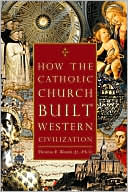From RZIM:
There are times when I read this story and I long to say in response, "But it did end in death." Before the story of Lazarus was a story fully marked by the power of resurrection, it was first a story marred by the force of death. Lazarus still walked through the pain of his illness; he still faced the uncertainty of dying. Mary and Martha still grieved at the grave of their brother for four days. And Jesus himself wept. Even for those who look to the resurrection as their certain hope, death is still a jarring occurrence. The journey toward death was harsh and shocking to Lazarus, his family, and his friends. But it was not the final word. There is a voice that can be heard even through the last shriek of death....
...We don't know how Lazarus reacted to his own death and subsequent resurrection. The gospels do not offer us a single word from the mouth of the one who was raised. In fact, the man at whose grave Jesus wept is known only in the gospels as one who listened. Amidst a crowd drawn by sorrow to a graveside in Bethany, Jesus called out in a loud voice: "Lazarus, come forth!" And the dead man indeed came out, his hands and his feet wrapped with strips of linen, and a cloth around his face. There is something about suffering and despair that brings us to strain our ears for the voice of God. Where we have written God off as silent, where we have lived with the suspicion of a distant or demanding ruler, there is a compulsion within our pain that forces us to listen. There is an image of Christ who carried the same burden. And it is met with the promise of one who speaks: This sickness will not end in death. (more)


No comments:
Post a Comment